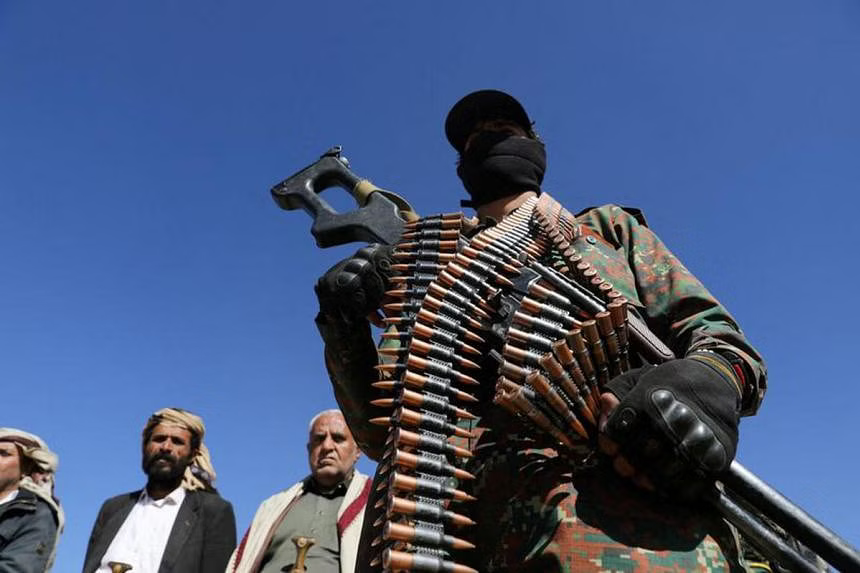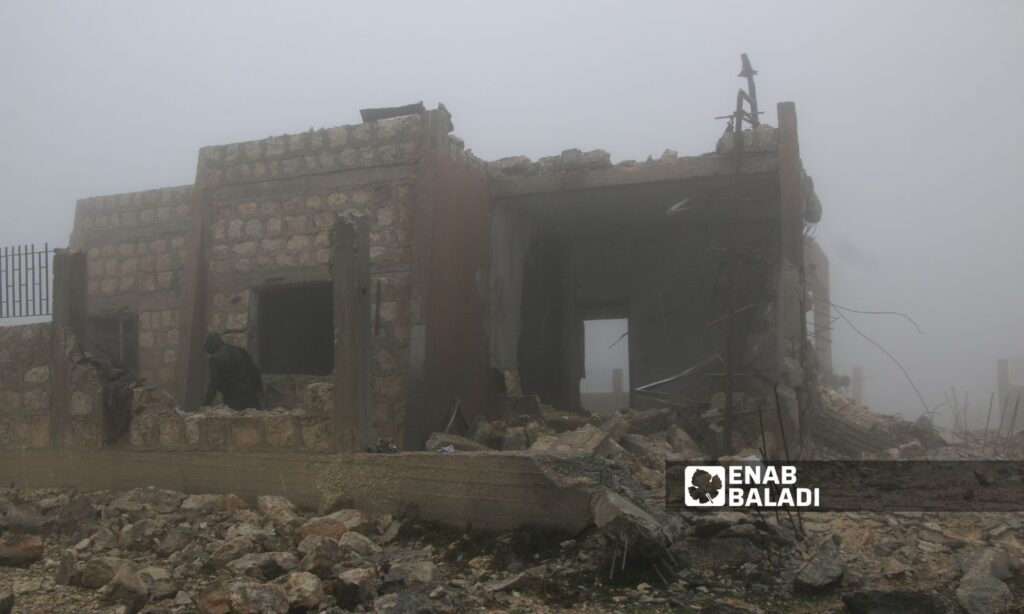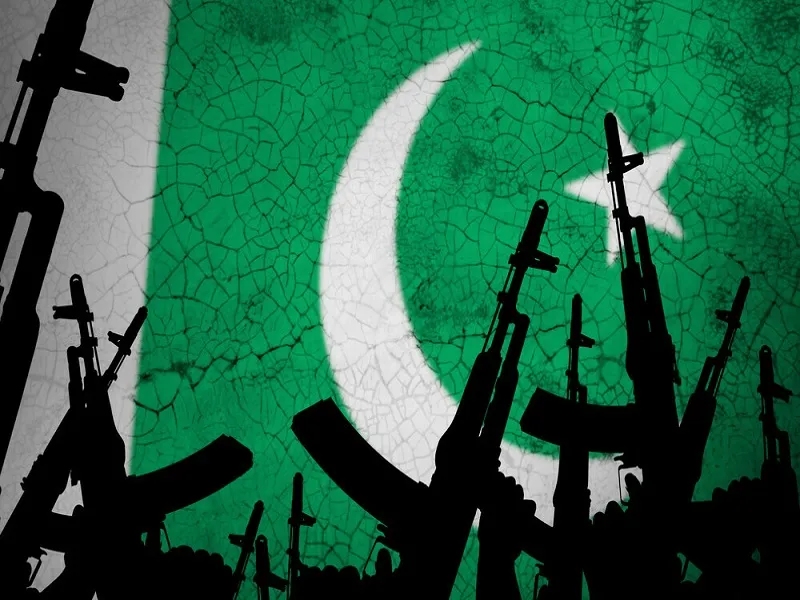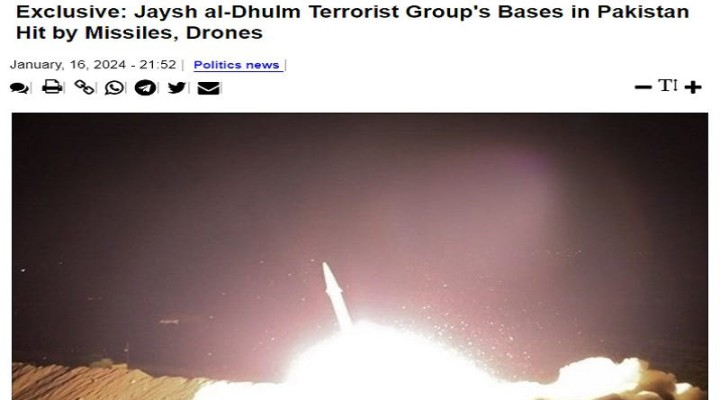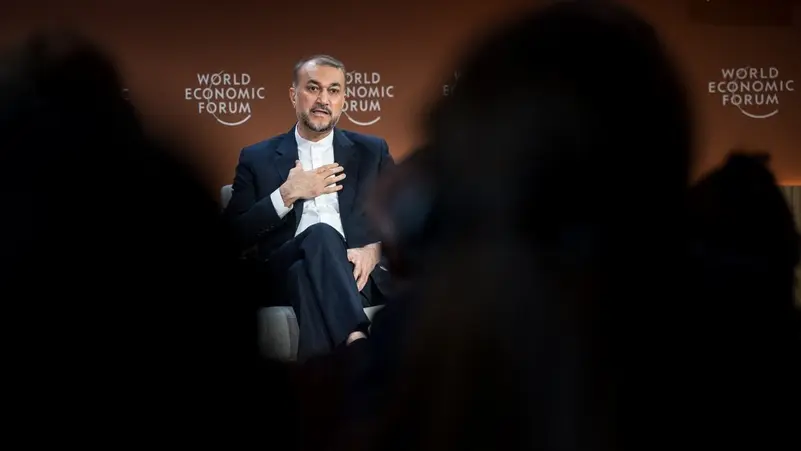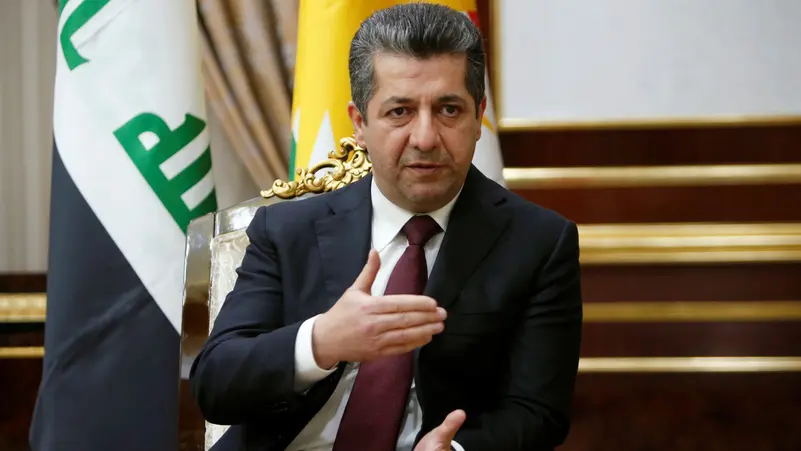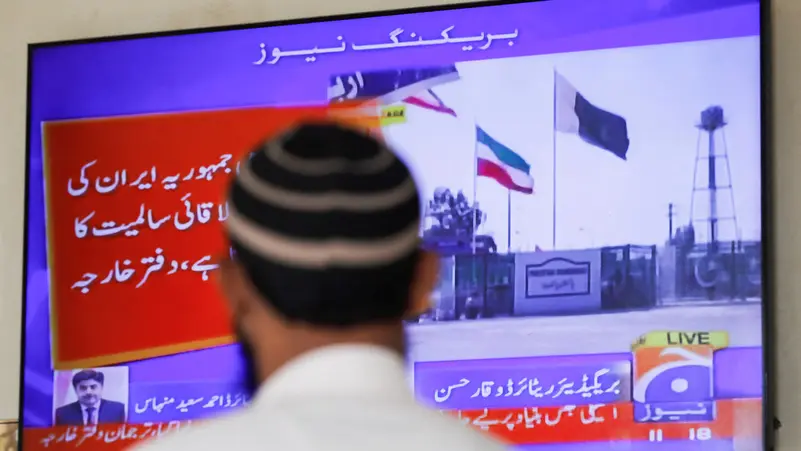While the violent jihadism of ISIS and al-Qaeda have held international attention for decades, there is another Islamist group that has embedded itself in Western countries, using free-speech protections while it calls for the transformation of democracies into an Islamic caliphate – ironically free from free speech. That group is Hizb ut-Tahrir, the Party of Liberation (HT). Though it has been criminalized throughout the Middle East, as well as China, Germany and Turkey, HT maintains chapters in the United States, Australia, Canada, and almost 30 other mainly Western countries. On Monday, the United Kingdom announced HT had finally crossed the line and would be banned. The United States and other Western nations should follow Britain’s lead and ban HT’s insidious hateful and pro-terror propaganda.
HT evaded previous attempts by British prime ministers to criminalize it because it did not directly call for violence. The impetus for the shift in British policy was Hamas’s October 7, 2023, massacre in Israel, which killed approximately 1,200 people and resulted in Hamas taking some 240 hostages into Gaza. In response, Israel declared war against Hamas and launched a campaign to uproot the terrorist group. Worldwide, HT chapters organized propaganda and rallies in support of Gaza, defending Hamas’s October 7 attack as “resistance” and accusing Israel of genocide. During a reportedly sparsely attended HT rally for Gaza in London on October 21, attendees called for jihad. British officials accused HT of supporting terrorism and promoting antisemitism, leading Home Secretary James Cleverly on Monday to submit a draft order banning the group under the Terrorism Act of 2000, which would criminalize “belonging to, inviting support for and displaying articles in a public place in a way that arouses suspicion of membership or support for the group.” The ban could go into effect by Friday, pending parliamentary approval.
Now it is time for the rest of the world to follow suit. According to British Home Secretary James Cleverly, HT’s praise of the October 7 attacks and description of Hamas as heroes constitutes promotion of and support for terrorism. HT Britain condemned the move as a “desperate measure to censor debate about the genocide in Palestine and to stop Islam’s just political alternative.” The only thing the British ban would “censor” is praise for terrorism and calls for violence against a democratic nation. HT itself has provided clear evidence of its antisemitic and homophobic rhetoric, and—most damningly—its support for internationally designated terrorist groups such as Hamas on its chapters’ websites and social media.
HT has firmly rejected the two-state solution to the Israeli-Palestinian conflict and Israel’s right to exist, while HT Britain has called on Muslim armed forces to “take immediate action to free Palestine from occupation.” HT Britain also rejected associations of Hamas’s October 7 attack with antisemitism or terrorism, claiming Israel itself is “illegal in origin and brutal in nature.” On October 9, 2023, two days after Hamas’s heinous massacre, HT’s central media office issued a statement condemning “the hostility launched by the Jewish entity since Saturday morning,” insinuating that Israel’s retaliation against Hamas occurred in a vacuum.
This is not the first time HT has professed support for terrorism. HT has long supported offensive jihad against Israel. In 2002, HT leaflets in Denmark urged Muslims to kill Jews “wherever you find them, and turn them out from where they have been [sic] turned you out.” In 2003, similar antisemitic rhetoric resulted in the group being banned from many university campuses in Britain and a complete ban of the group in Germany. Despite this direct call for violence, HT largely remained legal in the West while its radical ideology influenced foreign fighters who joined ISIS and other groups. Indeed, some of the world’s most notorious terrorists have either been HT leaders themselves or attended HT events. This list includes 9/11 mastermind Khalid Sheikh Mohammed, British ISIS executioner Mohammed Emwazi, a.k.a. “Jihadi John,” and Abu Musab al-Zarqawi, founder of al-Qaeda in Iraq, among others.
In the United States, HT America called the October 7 Hamas attack an “alarm” for the Islamic community and a “a deliberate halt to the insidious betrayal of the region’s puppet-masters.” With respect to the recent trend of Arab normalization with Israel, HT America accused the Arab states of nearly “erasing” a century of “aggression” against the Islamic community. HT America further praised the Hamas attack for giving way to a “shift of the political atmosphere, granting hope in victory for” Allah’s servants.
HT America holds its annual Khilafah Conference in the Chicago area. Speakers at HT America’s May 2023 conference declared the dangers of the “LGBT agenda” and how the Islamic community must push back against the LGBT threat to “dismantle” families and “corrupt” communities. Other speakers over the years have spoken out against democracy, capitalism, feminism, secularism, and Western liberal values—all while ironically using the right to free speech to project their vitriol. While HT’s hateful rhetoric may be protected under U.S. free speech laws, as it does not directly call for violence, U.S. hotel chains are under no obligation to permit HT to use their facilities. For years, CEP has called on hotels and conference centers in the area to reject HT’s abuse of their facilities. Few would argue if a hotel refused to host a Ku Klux Klan convention. So, too, hotels should exercise the same discernment in rejecting HT’s use of their facilities to preach their extreme ideology. HT’s blatant support for a designated terrorist organization should be impetus enough for U.S. businesses—if not the U.S. government—to bar HT.
For years, HT has abused free speech protections to fend off attempts to criminalize it in Western countries. In 2015, HT Australia condemned newly passed anti-terrorism laws in Australia for seeking to “beat the Muslim community into submission.” Australia’s then prime minister, Tony Abbott, previously sought to ban HT in 2015, accusing HT of justifying terrorism. While Abbott acknowledged that HT didn’t directly advocate terrorism, he recognized that it made excuses for terrorist organizations. HT’s rhetoric does not simply justify terrorism, it encourages it. Fast forward to October 2023, and we clearly see HT legitimizing Hamas’s terrorism while calling on Muslim armies to attack Israel. While HT claims it is not antisemitic, its delegitimization of the Jewish state and defense of terrorism against Jews tells a very different story.
HT has demonstrated blatant support for a designated terrorist organization while openly supporting terrorist violence. The British government is finally taking the necessary steps against HT and its pernicious attempts to radicalize its Muslims against democracy and democratic values. Now is the time for the United States and other Western countries to follow Britain’s lead and ban HT.

